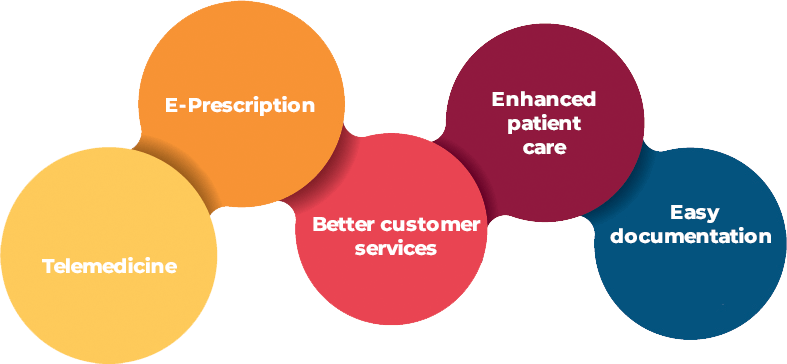The Healthcare industry has been experiencing a revolution in the last few years. In the developments or advancements, research organizations have played a major role. Most research organizations have been collaborating with some healthcare app development company to provide better healthcare services.
Contract Research Organizations (CROs) have developed and expanded to a multibillion-dollar business that primarily serves the life sciences industry, academia, and research and development organizations, the roots of which are deeply embedded throughout multiple areas (conduct, planning, and execution) of clinical trials. CROs are essential to every stage of a clinical trial (from Phase I to IV). They carry out a variety of tasks linked to human research and represent pharmaceuticals, medical devices, biotechnology, and many other industries.
History of CRO
The contract research organization (CRO) is a branch of the biotechnology services sector. It closely collaborates with biotechnology and pharmaceutical firms or research institutions from the drug development stage through the market launch phase to offer services like drug discovery, clinical trial planning, support for observing clinical research, data analysis and management, application Review, and post-marketing monitoring, to speed up product development or launch.
Due to increasingly strict restrictions, the development of new pharmaceuticals in international pharmaceutical companies is getting more complicated. Because more resources are needed in addition to equipment assistance, the need for entrusted R&D and clinical trial services has increased in the biotechnology and pharmaceutical industries.
Technological advancements
Clinical trial design will continue to change as a result of technology, with CROs turning their attention to machine learning and artificial intelligence (AI). CROs will likely depend less on physical labor as a result of these new technologies.
As a result, the type of experts that work at different CROs will no longer be the difference and competitive advantage, but rather the type of technology that CROs have access to, particularly the sort of technology that can organize and analyze clinical and medical data Through the use of biosimulation, experiments can be conducted virtually on a computer before being carried out in person. This technology will increase the effectiveness of CROs and clinical trials.
The adoption and transition from a conventional to a next-generation, automated, and intelligent paradigm offered organizational adjustments as well as technical obstacles for CROs and the life sciences sector. CROs frequently see opportunities in an increasingly digital and linked ecosystem that cannot be taken advantage of alone.
Apart from this, there are certainly other factors involved in the technological advancement of CRO. These factors comprise healthcare app development company, and healthcare app development services. These healthcare app development company work closely with the CRO on issues in the healthcare sector.
Due to advancements in technology, these advancements are now in the form of healthcare app development services. These services offer:
- Telemedicine
- E-Prescription
- Better customer services
- Enhanced patient care
- Easy documentation
The healthcare app development services being employed in combination with the CRO allow the research organizations to obtain better results.

Role of technology in CRO transformation
More and more CROs are digitally transforming the processes. Digital transformation and automation are becoming major aspects of the research industry now. When the entire world was fighting with covid, it became a necessity to automate this industry as well for better and more accurate results. The precision offered by automation is making the research industry excel in all divisions.
Another aspect of introducing digital technology is data handling and data interpretation. CROs rely on the data and managing the data becomes tedious. With the help of innovative technologies, CROs can easily manage a huge amount of data. It further provides remote monitoring and helps to keep a track of trails. Meanwhile ensuring continuity.
Future of CROs implementing technology
The introduction of modern technology has revolutionized the research industry. And further implementation of such technologies has a long way to go for the industry to go. Some of the future aspects of CROs using modern technology are listed below:
- Leveraging technology instead of manual efforts
- New approach for CROs
- Remote access
- Innovation
- Flexibility
- Scalability
Closing the discussion
The CRO sector is always changing, and a CRO’s ability to successfully navigate these changes depends on how they adjust their methods and strategies to be more adaptable and productive.
The ideal CRO digital platform presents a chance to reduce the administrative burden currently placed on sites and to move data capture and integrity directly into the digital ecosystem, enabling earlier intervention, if necessary, or more rapid trial completion to support registration or go/no-go decisions.
To drive the CRO transformation, these improvements will need organizational change and leadership vision. The most cutting-edge and practical solution to the sponsor-CRO challenges is cloud technologies combined with digital and cognitive automation. This combination offers improved Clinical Trial operation management, a quicker time to market, and, most importantly, ensures patient access to better and more effective products and treatments.





